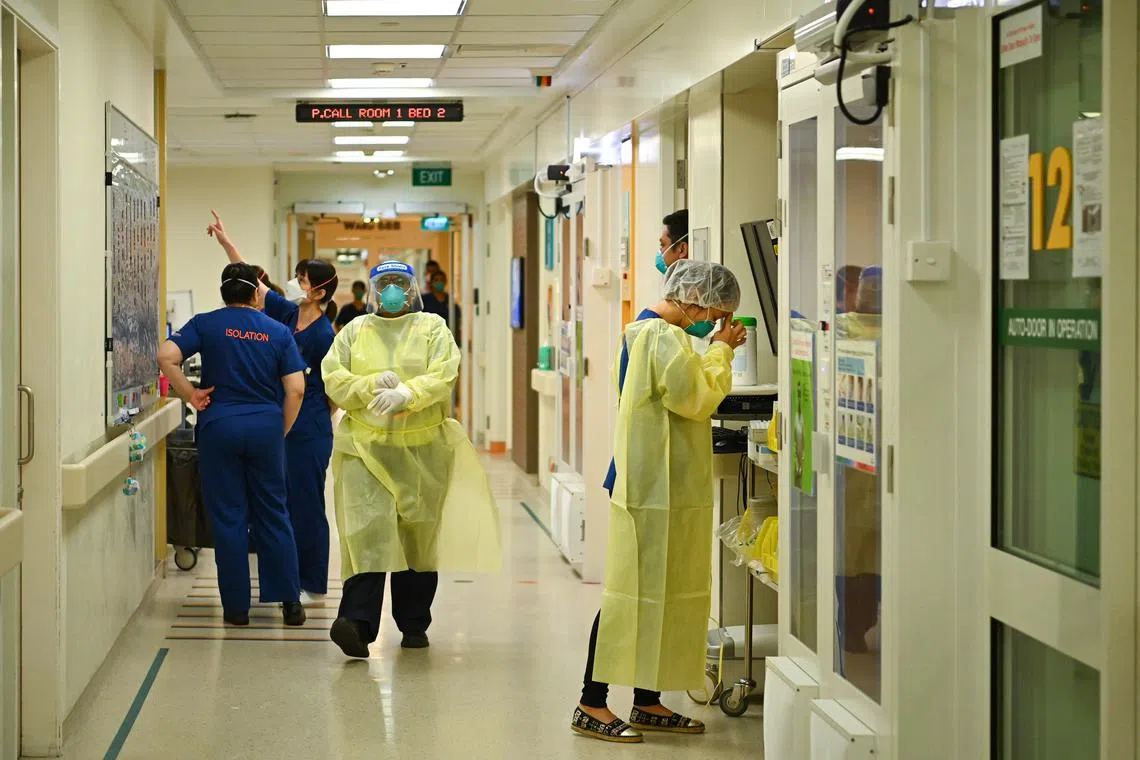Singapore launches national plan to enable faster response to future pandemics
Sign up now: Get ST's newsletters delivered to your inbox

With the experience of the Covid-19 pandemic, Singapore will further enhance its preparedness against future infectious disease outbreaks.
ST PHOTO: LIM YAOHUI
SINGAPORE – A dedicated research programme launched on Thursday with funding of $100 million over five years will allow Singapore to pull together pandemic experts from various fields to respond to future infectious disease outbreaks.
The Programme for Research in Epidemic Preparedness and Response, or Prepare, will link up experts from various disciplines as well as government agencies to tackle such threats.
It will also reach beyond the nation’s shores to strengthen research partnerships, share information and knowledge, and collaborate with institutes internationally.
Prepare will be led by Professor Wang Linfa from Duke-NUS Medical School, with Professor David Lye from the National Centre for Infectious Diseases (NCID), which is hosting the programme, as his deputy.
Health Minister Ong Ye Kung, who officially launched Prepare, which was set up about a year back,
With the experience of the Covid-19 pandemic, Singapore will further enhance its preparedness against future infectious disease outbreaks, he said, and Prepare will be one of the key initiatives.
Although Singapore had been preparing for the next pandemic after the severe acute respiratory syndrome outbreak in 2003, there were still gaps that hindered its performance.
Prof Wang said that after Singapore obtained a viral sample from the first Covid-19 patient here, it took three days to get permission to isolate and sequence the virus.
This was already fast compared with the amount of time this typically takes, but it nevertheless was a delay. The genomic sequence is needed to create diagnostic tools as well as vaccines.
Professor Tan Chorh Chuan, who co-chairs the Prepare steering committee, said: “When we look at a pandemic, we realise we need answers and effective solutions in a very short time.”
Prof Tan, who is chief health scientist at the Ministry of Health, said clinicians need guidelines on how to manage patients.
NCID executive director Leo Yee Sin said it was thanks to good, established networking that Singapore was able to link up with the National Institutes of Health in the United States to find out what treatments work.
Before that, she said, “we were just using everything”.
Speed is really critical, said Prof Tan, and that is the most compelling reason for having Prepare.
The only way to get that speed is if all the necessary background work is done.
This includes legal frameworks, such as how to rapidly share patient data while keeping confidentiality intact, so researchers can work on solutions. It means training up expertise and “keeping them warm”, said Prof Tan, because the next pandemic might be a decade or more in coming.
Meanwhile, there are many “intermediate” things that such upskilling can achieve, such as discoveries that will help in understanding future threats better, he said.
This will allow scientists and researchers to “do exciting things” such as creating new drugs or vaccines that could give them international renown.
Prof Wang agreed that Prepare is not just about waiting for the next pandemic. Skills developed will also be useful in smaller outbreaks, whether within Singapore or in the region – hence also the need for good networking.
He said that internationally, scientists have identified 20 viruses that could potentially jump to humans and cause a pandemic. Singapore does not have the funds to study all of them, but could do in-depth studies into one or two of them, so the information would be there should such a jump occur.
Associate Professor Gladys Tan, director of the Biological Defence Programme at DSO National Laboratories, likened Prepare to the military, which keeps up its training so it is always ready for a war that hopefully will never come.
Editor’s note: This story has been updated for clarity.



